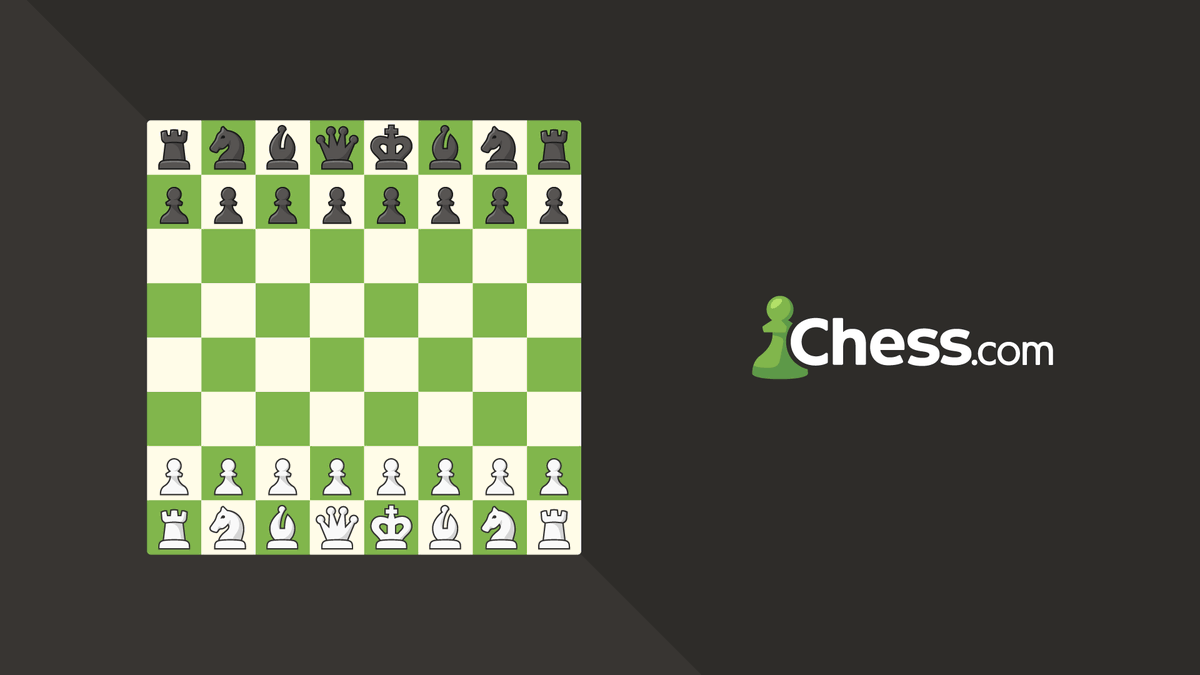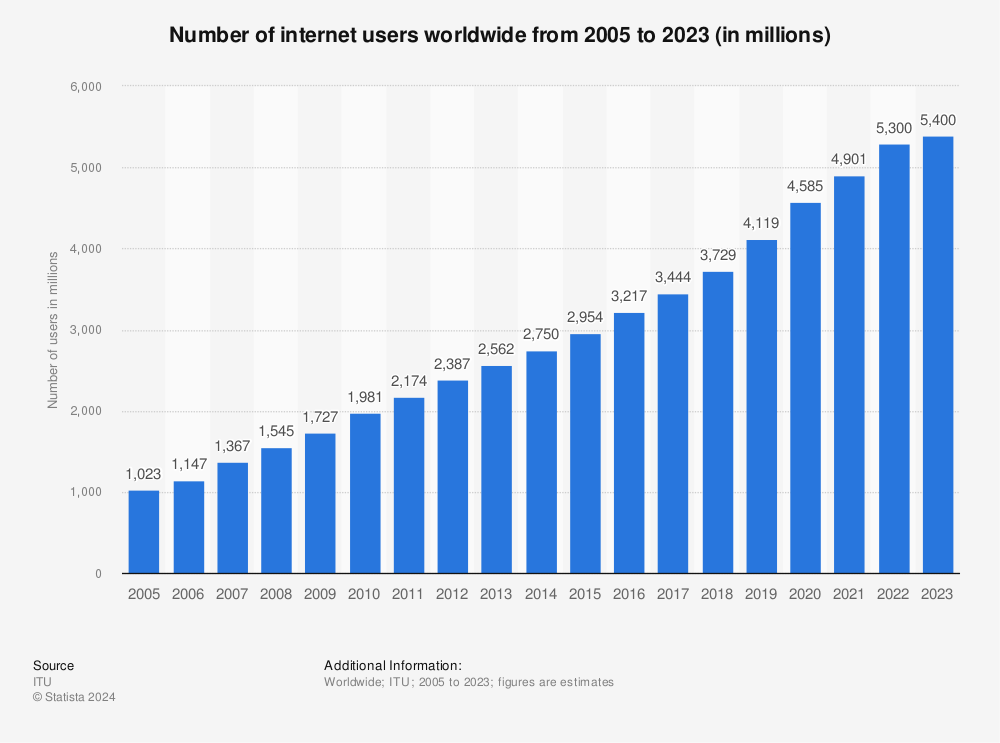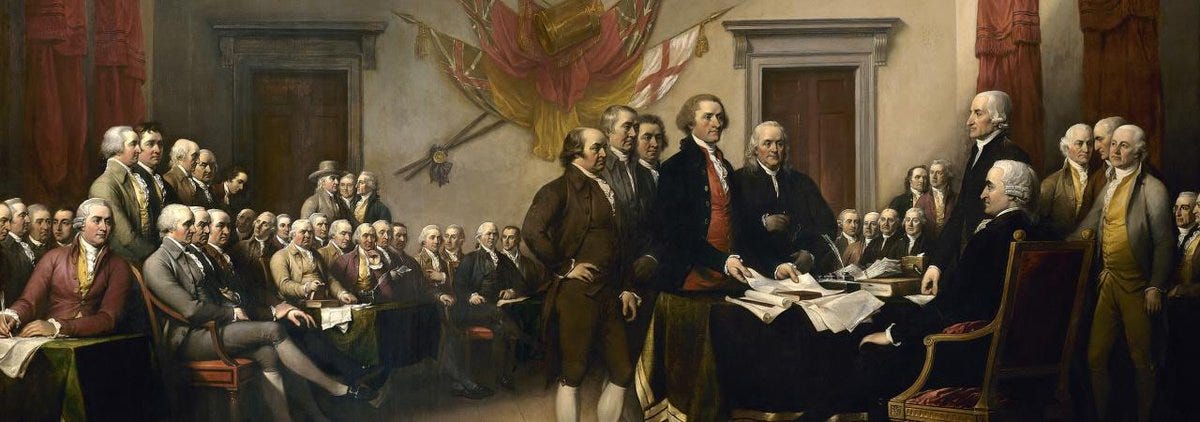Protocols shape our world. They are impactful, rare, durable, and they’re great for the world.
If you spot a strong protocol gaining traction, do not ignore it — it might just change the world.
This post uses a very liberal definition of a protocol (protocol might not even be the best word — synonyms include open standards, rules, conventions, and cultural traditions).
A protocol is a set of rules
A protocol is a set of rules that groups of people follow. Protocols enable human coordination and cooperation on a large scale. When many people adopt these rules, the protocol gains significant influence.
Here are examples of great protocols:
The Internet
The English language
Chess
The US Constitution
The metric system
Bitcoin
These examples will help us understand protocols. They are rough, imprecise examples used to better understand Bitcoin, which I believe can be the next great protocol.
(Note: I'm based in the US, so I have a Western bias. There are similar examples across the world).
Core Attributes of a Protocol
The core attributes of a protocol:
It’s created by humans, for humans
It’s rules-based and enforceable
It has leaders but not owners
It’s open for anyone to use
It’s designed to grow
1. Created by Humans, for Humans
Protocols are deliberately designed by humans to organize humans.
Unlike more naturally occurring social phenomena like free markets, protocols are intentionally crafted rules and standards. Humans create these rules or protocols to solve problems among humans.
The metric system was created by humans to better coordinate how we talk about measurements. The US Constitution is a protocol designed to set rules for governing the US.
English, the Internet, chess, and Bitcoin are all created by humans. We’re not talking about physics, evolution, gravity, or fire.
2. Rules-Based and Enforceable
Protocols are centered around rules or standards. But critically, these rules are enforceable.
For example, the Internet relies on the TCP/IP standards or protocols. Applications that do not use these standards simply will not work. These standards are effectively enforced by the underlying network infrastructure.
In chess, moving the king two spaces violates the rules and will lead to an immediate ejection from any chess tournament.
The rules of a protocol are well reasoned. But often, the rules are arbitrary (unlike the rules of physics). For example, there will only ever be 21 million Bitcoin. The important part of a strong protocol is that these rules can be enforced.
3. Decentralized Power
Importantly, no single individual or concentrated group owns or controls a protocol. No one owns chess or the Internet.
Point 2, “Rules-based and enforceable,” and point 3, “decentralized power,” are in direct conflict with each other. However, the balance between decentralization and enforcing rules dictates the strength of the protocol.
For example, it’s easy to enforce rules with top-down control, like the CEO of a company can. However, enforcing rules in a decentralized manner is difficult to coordinate. Finding a decentralized protocol that can effectively enforce its rules is not common.
As protocols are human-centered, there will naturally be human leaders and power struggles between groups in the protocol. Sometimes, factions will gain power. However, a good protocol will have many leaders without a concentration of power that can change the rules.
For instance, while Meta and Google are influential in the Internet protocol, the Internet will continue to function without them. Also, they cannot change the rules of the protocol.
Chess.com is a leader in the chess protocol. However, chess will live on long after Chess.com dies off.

The founders of the US were deeply interested in the decentralization of power (e.g., states rights, separation of powers between branches of government).
Because of their decentralized power, protocols can last for hundreds or thousands of years. They don’t rely on a person, CEO, or small group of people to maintain it.
4. Open to All
A protocol is open, allowing anyone to join (as long as they follow the rules).
English, a language protocol, is open to anyone willing to learn it. But to join the protocol, you must know and follow the rules (how to speak it). Similarly, the US is viewed as a land of immigrants, open to those who adhere to its principles and rules (of course, this example gets more complex).
In chess, anyone can learn the rules and start playing. They can even make a website or tournament to make a business on top of the protocol. The protocol is free and open to use.
Anyone can purchase Bitcoin and even build on top of the protocol.
Twitter, Facebook, and Google are famously not open protocols. But they are built on top of one of the great open protocols — the Internet.
5. Built to Grow
A well-designed protocol will grow. As it is a set of rules that is open to anyone, a great protocol will thrive in the open market of ideas.
People generally like and benefit from the rules and standards a protocol establishes, so they tell their friends about it. The Internet continues to grow without a CEO or marketing team.
These protocols thrive because they provide clear benefits and opportunities to their adherents (they’re rarely administered top-down).
Identifying Protocols
Don’t mistake an application for a protocol
Applications are built on protocols, leveraging the protocol's foundational rules to create products. Google and Facebook are "applications" built on the Internet protocol.
Here’s a stretch example: Standard Oil was an “application” created “on top” of the US Constitution protocol. The rules, structures, and freedoms within the US made the huge company possible.
Also, your local chess club is an “application” on top of the chess protocol. The leader of your chess club can change the rules of who gets into the club and the fees to join. But they can’t change the rules of chess.
Applications last for decades. Protocols last for centuries.
If it can be forked, it’s probably a protocol
A hallmark of a protocol is its ability to be "forked." Forking a protocol loosely means that you create a new, altered version of the protocol while retaining core elements.
Bitcoin Cash is a fork of Bitcoin. Outside of software, you can imagine other protocols being forks of their predecessors. The Constitution builds upon lessons from the Articles of Confederation and other legal documents. Protestantism can be thought of as a "fork" of Christianity in a broad sense.
Because protocols are a general set of rules, ideas, and standards, they can be forked. Forking an application or company (like Google) built on a protocol is much more difficult.
Finally, the longer and more culturally engrained a protocol is, the harder it will be to successfully fork. Good luck changing the length of a meter at this point.
Protocols thrive on stability
The strength of a protocol lies in its resistance to arbitrary changes. Stable protocols like chess or the metric system maintain their integrity by making rule changes difficult (governments have often stepped in to enforce standards of weights or measurements). This stability fosters trust and reliability. Stability breeds confidence in the protocol.
For example, it’s easier for authoritarian governments to change the rules of the game (they have more centralized power). This is one of the strengths of the separation of powers found in the US (and other democracies). The stability makes the US a great place to do business.
The founders of the US thought a lot about decentralization of power
Protocols are rare because it’s difficult to create a system that enforces stable rules without an owner or a leader.
The Impact of Protocols
Protocols enable large-scale coordination and shared understanding. Protocols give people a foundation upon which to build, collaborate, and prosper.
The US Constitution has provided a stable foundation for building a prosperous society, and the Internet has built a foundation for thousands of big businesses. English has provided a way for billions to communicate.
Great protocols are hard to come by. It’s not easy to create a protocol, but when we do create a good protocol, it tends to have staying power.
If you find a protocol that is working, don’t underestimate it. It might just be as impactful as the metric system, the US, or the Internet. And it may last centuries, not decades.
Bitcoin the Protocol
Bitcoin has the opportunity to be another great protocol.
It’s created by humans, for humans.
It's rules-based and enforceable.
It's decentralized, and it doesn’t have powerful, controlling owners.
It’s open for anyone to use.
It's designed to grow (and it's growing)
Also, it has proven robust to arbitrary changes. Finally, it’s easy to fork but hard to fork successfully.
Thoughts or feedback? Please leave comments.
Here are some other examples that loosely fit this definition of protocol:
All languages are good examples. Interestingly, people argue that English was more successful than French because of its decentralized power.
Christianity and most religions are loose examples — Christianity is famous for being forked into different factions.
Soccer and most sports. However, soccer is a more robust protocol than a newer sport like American Football due to the NFL's centralized power over football's rules.
Checkers and most traditional games (but not Monopoly since its rights are owned by a company).
Email protocol, QWERTY keyboard, and many other examples in computing. Apple’s Apps store is almost a protocol, however its power is centralized.
Ethereum and other cryptocurrencies are protocols. However, there are strong arguments to support Bitcoin being in a class of its own here.
Gold is a monetary protocol (though not created by humans). Fiat currencies fail the protocol test due to their centralized control.
Gregorian calendar
The size of shipping containers
Base 10 numeric system






